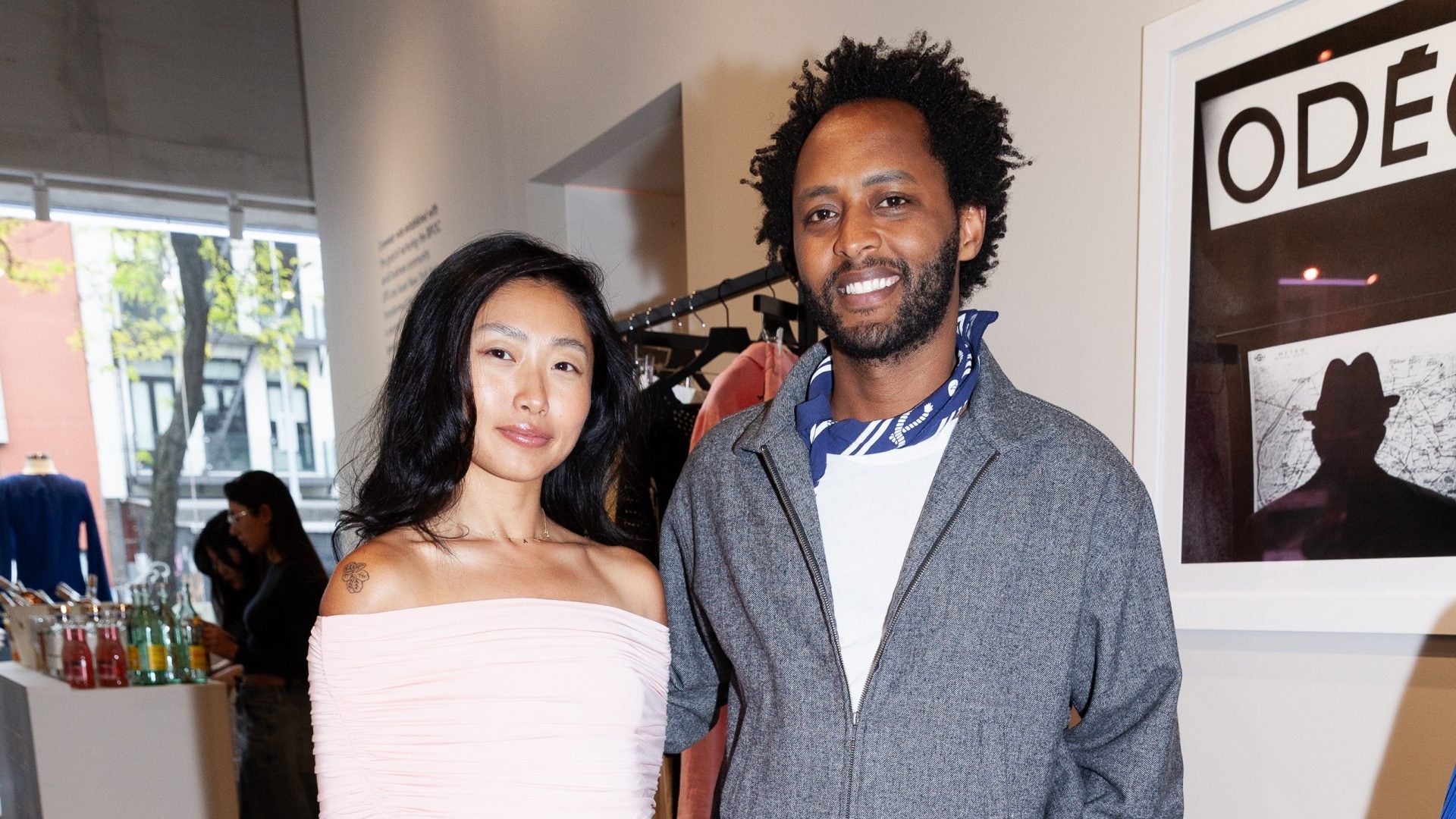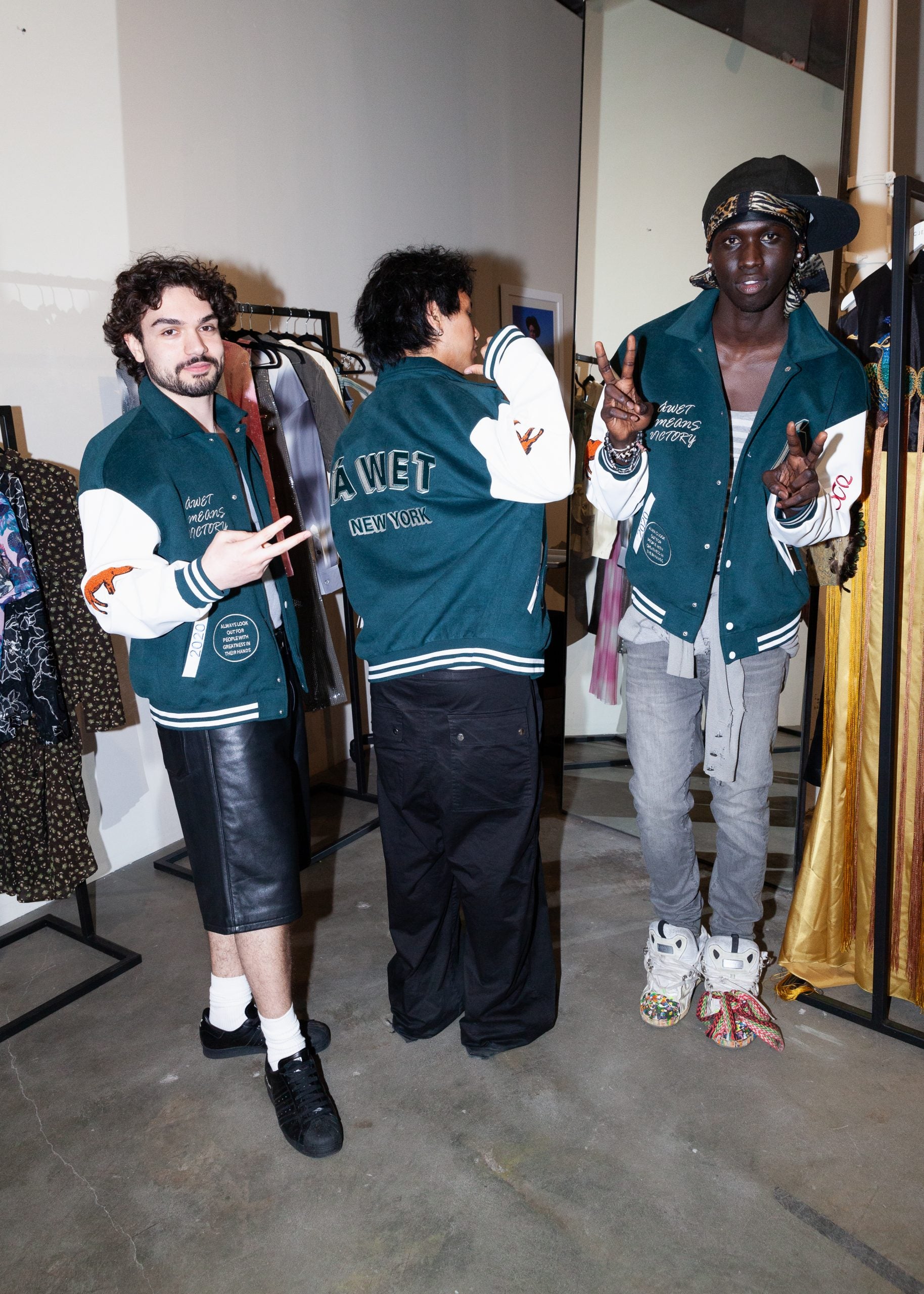
Eritrean tailor Goitom Woldegebriel sharpened his aesthetic consciousness in the shadow of war, witnessing the Eritrean-Ethiopian conflict firsthand during his youth. After an extended period of transience, he planted roots in New York, where he continued his generational process in tailoring and craftsmanship. Today, the family’s label and Soho storefront are named for Woldegebriel’s son, Áwet, which means victory in Tigriny—a polysemous reference to the resilience that grounded the founder amidst conflict.
With a reverence for the community, Áwet wanted to create a space to celebrate young talent in similar ways that his father believed in nurturing the hands that prepare the garments of a shared tapestry. So, when Jenny Zheng, founder of U.S. and China-based public relations firm Velvet.Co proposed an opportunity to uplift Asian American Pacific Islander designers collaboratively, there was natural alignment.
From May 4th to May 5th, ÁWET’s Bond Street flagship hosted eleven AAPI-owned brands. Micro-collections and small run released, curated by Velvet.Co, an AAPI woman-owned international public relations and marketing company were showcased alongside ÁWET’s newest Spring/Summer ‘24 collection—the usually genderless label’s first womenswear release.
In the context of New York’s post-2021 collective mission to combat anti-Asian bigotry, all parties needed to create an industry space that fosters celebration and sanctuary. Proceeds of purchases made during the pop-up went towards Make Us Visible, an organization empowering local communities to build curricula for the integration of Asian American contributions, experiences, and histories in K-12 classrooms. Now more than ever, the fight against racialized miseducation is a collective one, with stakes affecting the ways that students across backgrounds come to understand American and world histories. Anti-racist reading is essential.

Woldegebriel calls the prioritization of community a “ lifeblood and driving force. We deeply value the opportunity to feature the exceptional skills of AAPI designers at our flagship store.” With the space’s archival 20th-century furniture pieces and a gallery-like spatial design, the ÁWET store has a multipurpose role as a gathering space. A bar greets shoppers on the far left side, often with the founder behind tending to beverages himself. Visitors are treated as guests, and for a man with such a connection to the practice of convening, it is fitting that his store opens the doors to a sense of joyful uplift, allowing him to serve as host in multiple ways.
“Since the beginning,” Áwet tells ESSENCE, “our goal for the flagship has been to create a lively center that fosters a sense of belonging, and this successful pop-up event embodies just that. It’s a fantastic way to celebrate the start of AAPI month.”
Of the eleven brands featured at the pop-up, many have already achieved high-profile placement and thus an increasing visibility in the fashion scene. Pieces by the formalwear brand Maison de hoe were displayed just a couple of months after the Chinese grunge label donned none other than Kelly Rowland during this past Oscar season.
On the accessories end, multiple labels spotlit the international take on blokecore (see Empty Behavior’s kitten-heeled soccer cleats) and Indie Sleaze (see the hobo-chic-coded Apede Mod’s open structure Jolin Bag). Both pieces elevate the minutiae of the everyday with a subtle reference to globally-informed cultural trends. Underscoring all represented brands was the emphasis on mindful craftsmanship, resulting in an overall character of accessible elegance. If you were able to attend, it was evident that there is truly something for everyone.
The full collection of present AAPI brands included MERGE, VINNPATARARIN, Apede Mod, JEOI6, Empty Behavior, Private Policy, WÀNGDA, Maison de hoe, 77TH, Verafied, and C Jean.
Velvet.Co founder Jenny Zheng wanted to represent designers from across the Asian diaspora, offering up-and-coming houses an opportunity to reach U.S. markets. “Our collaboration with Áwet and the outstanding AAPI designers is a testament to this commitment,” Zheng tells ESSENCE.com. “By curating the best Asian-owned brands, we aim to shine a spotlight on their exceptional craftsmanship and creativity. I invite you to explore and support these talented designers at their respective websites, where each purchase not only adds to your wardrobe but also contributes to a more inclusive and equitable industry landscape.”
Similarly, Áwet’s ethos in design is inextricable from his narrative in personal fortitude, anchored even deeper with his regard for his familial heritage. The narrative of global re-emergence is shared by many artists and creatives seeking to launch their work in New York markets.
The tapestry of cultural diversity has historically sustained the craft-forward fields that make the artisan scene unique. Stay tuned to the international independent design scene to find more brands represented at the pop-up.